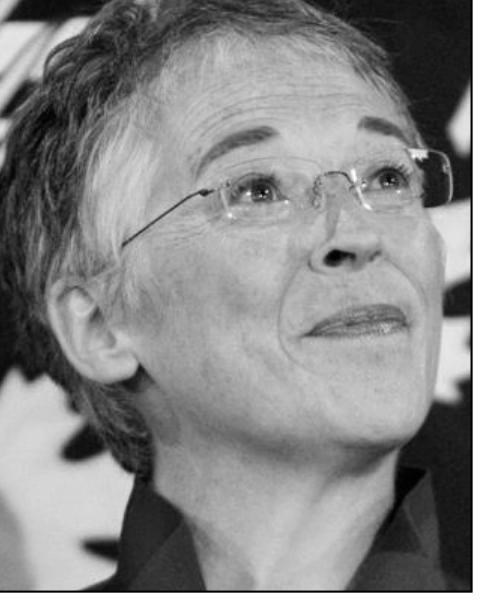When B.C. Health Minister Margaret MacDiarmid trained as a physician in the 1980s, home births were not even contemplated as a safe alternative.
MacDiarmid, the former president of the B.C. Medical Association, is encouraging women with low-risk pregnancies to plan their deliveries at home if that's what they'd like, citing B.C. research published in the Canadian Medical Association Journal in 2009 as the safety standard.
As long as mothers were screened to be low-risk and assisted by a registered midwife, "there wasn't any difference between the outcomes for moms and babies whether they were at home or in a hospital," she said, adding it would also save the health system money.
Last year, 983 B.C. babies - two per cent of the total - were delivered by midwives at home, but in Victoria, the number was nearly 18 per cent. Of 783 midwife-assisted births here, 140 were home births, said Luba Lyons Richardson of the department of midwifery for Vancouver Island Health Authority South.
Richardson welcomes the ministry's decision to earmark $500,000 this year to pay a $350 fee for the second professional - another midwife, nurse or paramedic - required by law to attend home births. The money will pay for about 1,400 planned home births in B.C.
Midwifery has been covered by the Medical Services Plan since 1998, but until this year, midwives had to pay their colleagues at home births out of their own pockets.
MacDiarmid, who took the helm as health minister in September, said she does not view home births as radical.
"I do think it's important that people have choice," she said. "The evidence suggests that women have a more positive feeling about the birth experience and that they feel more in control of their labour when they're at home. And you can't put a price tag on that."
But the Midwives Association of B.C. views it as "absolutely" radical for a health minister to publicly support home births, said executive director Ganga Jolicoeur.
"I don't think - I know - that it's the first time that we've had a minister stand up and publicly support home birth," Jolicoeur said. The money is "a huge step in the right direction, [but] it has a lot more to do with the endorsement than with the money."
MacDiarmid acknowledged the stance represents a sea change in ministry outlook, but was preceded by former health minister Mike de Jong, who announced the $500,000 funding for home birth attendants earlier this year.
MacDiarmid added, however, that certain deliveries are better done in or near a hospital, citing the example of a healthy pregnant mother who delivered in hospital and almost immediately nearly died from blood loss. Had she been at home, it's highly unlikely she would have survived.
"You see that, and that's kind of what you remember," she said. "But that's not how we should make our decisions. Decisions need to be evidence-based." Home births for those who want them and can safely have them leave more hospital room for patients who need acute-care beds and limit costs associated with birth, a Health Ministry spokeswoman said. Data from 2004 from the Canadian Institute of Health Information indicated a normal hospital birth cost $2,700 and a caesarean section $3,200.
Until 2009, the College of Physicians and Surgeons of B.C. opposed home births on safety grounds, regardless of whether a physician or a midwife attended.
"When midwives first came into regulation, [the college] basically forbade their licensed physicians from attending home births," said Jane Kilthei, registrar of the College of Midwives of B.C.
Now, there are discussions in the Health Ministry on how to support physicians who want to attend home births with midwives to make sure the doctors are appropriately trained, she said. "It's a big shift."
The physicians' manual for planned home births "supports a woman's right to personal autonomy and decision-making in obstetrical care." But the College of Physicians and Surgeons says doctors play a key role in helping patients make a choice that takes into account benefits and potential for adverse outcomes.
The BCMA is in the midst of reviewing the latest information and data on home births, said spokeswoman Marisa Adair, but has not yet changed its stance against the practice on safety grounds.
THE COST OF HOME BIRTHS
This year's Ministry of Health funding of $500,000 to pay for a second midwife or other health professional at each home birth will cover about 1,400 deliveries and is part of the nearly $20 million the province is spending on midwifery in 2011-12.
From April 2010 to March 31, 2011, there were 1,364 low-risk home births planned, but only 983 actually took place. That's because 381 women chose to go to hospital for pain relief or because midwives recommended it for safety's sake, according to Jane Kilthei, registrar and executive director of the College of Midwives of British Columbia.
All told, midwives attended nearly 15 per cent of births in B.C. that year - 6,421 of the 43,530 births. The Midwives Association of B.C. has a goal of having a third of midwife-assisted births take place at home.
B.C. midwives can bill the Medical Services Plan $1,014 for their attendance at labour and delivery and $350 for the second attendant. They may also bill $150 for home birth medications and supplies.
- Katherine Dedyna



